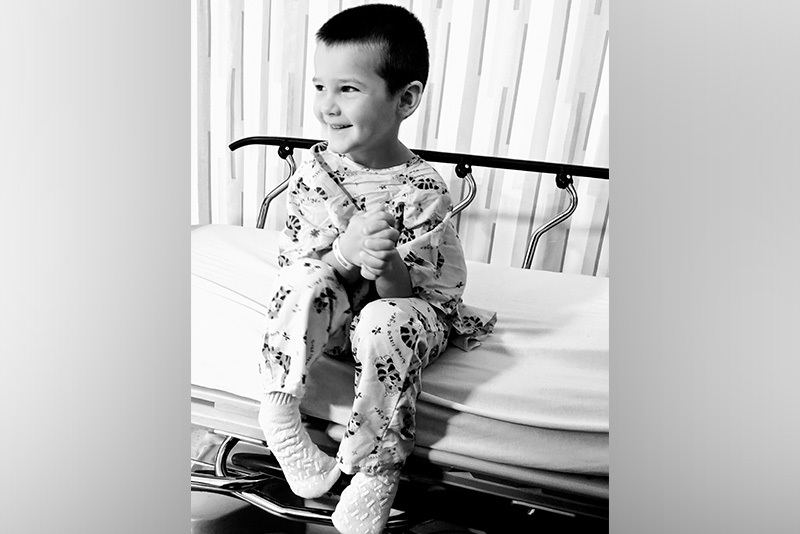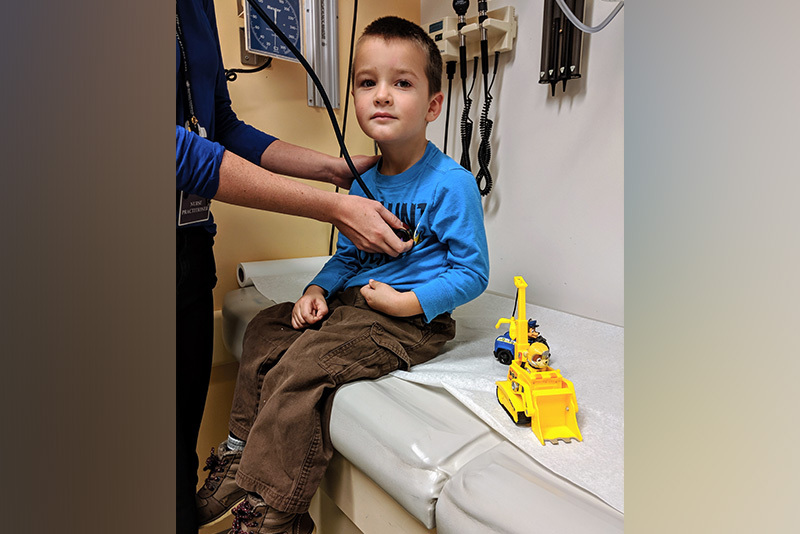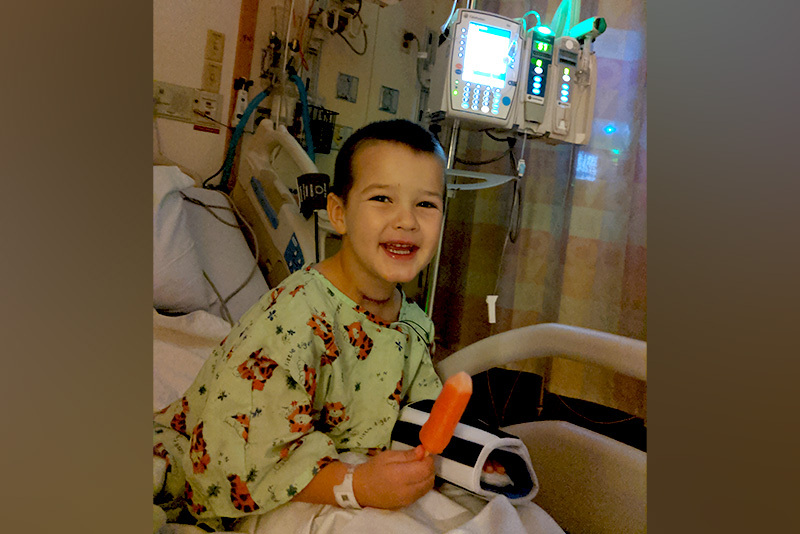Experience matters: For Curtis’s family, choosing a thyroid surgeon was simple

For many parents, being told their child needs a total thyroidectomy — surgical removal of the entire thyroid gland — comes as a frightening shock. But for Curtis Lynch’s family, the procedure is already quite familiar. Several members have also undergone thyroidectomy in hopes of mitigating their genetic risk for thyroid cancer.
Curtis’s family has a history of multiple endocrine neoplasia, a group of rare disorders that can make them more likely to develop tumors in the endocrine glands, including the thyroid. “I carry a gene for it, so we wanted to get Curtis tested, too,” explains his mother, Jillian, whose own thyroid was removed when she was in middle school. “We figured the sooner we knew, the better.”

Confidence and compassion
When testing revealed that Curtis, then a toddler, does indeed carry the gene, Jillian and her husband Heath decided to act quickly, opting for a prophylactic thyroidectomy to help reduce his chances of developing cancer. They scheduled a meeting with Dr. Biren Modi, surgical director of the Thyroid Center at Boston Children’s Hospital, who had previously performed the procedure on one of Curtis’s cousins with the gene. “He explained all of the steps and made us feel comfortable,” says Jillian. “We knew he performs a lot of these surgeries and has a great success rate.”
But for the Lynches, Dr. Modi’s bedside manner was just as important. “He wasn’t just confident. He also had a lot of compassion,” Jillian explains. “He understands where parents are coming from, and we could tell he really cared about our son.”

Resilience after thyroidectomy
Following a successful surgery that Jillian says “couldn’t have gone better,” Curtis began a smooth recovery. Although his parents expected some crying and fear as he healed in the hospital, he bounced back quickly. “He didn’t really slow down,” says Jillian, noting that he went for regular laps around the halls with his nurse (and his IV pole) and was awed by the seemingly unlimited array of Popsicle flavors. “The whole staff was so considerate — they really made him feel special,” says Jillian.
Today, Curtis shows no sign of thyroid tumors or cancer. Like similar patients, he now takes thyroid hormone medication — a treatment that will continue for the rest of his life — and follows up regularly with his local endocrinologist in New Hampshire. Now 4 years old, he’s both a “typical boy” and “total sweetie pie,” says his mom. And he has impressed his parents with his inner strength. “We didn’t really know how brave he was until he went through this,” Jillian admits. “He’s incredibly resilient.”
Learn about the Thyroid Center.
Related Posts :
-

Understanding and treating Mason’s congenital nevus
Kim and Ryan noticed their son’s birthmark almost immediately after he was born. They knew birthmarks were common, but ...
-

Using her voice: After tracheomalacia treatment, Claire keeps her eye on the ball
Claire Kantany is only 10, but she knows what she wants to do when she grows up — in fact, she’...
-

Pirate puzzles and peekaboo: Beckett’s brachial plexus birth injury story
Beckett Stone-Lyman is an adorable, fun 2-year-old who loves to run, sprint, and climb. If he’s not charging around ...
-

Years of experience support the safe use of fine-needle aspiration for pediatric thyroid nodules
Ultrasound-guided fine-needle aspiration (FNA) has long been used as a safe and effective way to evaluate thyroid nodules in adults, ...





